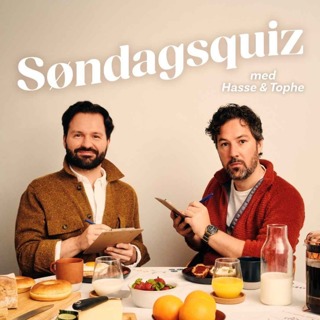
Episode 161 - Teaching Mindfulness w/ Dr. Joshua Felver
We were so fascinated by research on mindfulness in classroom management practices that we hunted down one of the researchers and demanded that they share all their secrets with us. Fortunately, we found the nicest one out there. And he even wrote a book on the subject! Dr. Joshua Felver brings the work of his research group into a deep dive into what is (and isn’t) mindfulness, how does it all work, and what’s most important for behavior analysts to know. This episode is available for 1.0 LEARNING CEU. Articles discussed this episode: Felver, J.C. & Singh, N.N. (2020). Mindfulness in the classroom. New Harbinger Publications, Inc. If you're interested in ordering CEs for listening to this episode, click here to go to the store page. You'll need to enter your name, BCBA #, and the two episode secret code words to complete the purchase. Email us at abainsidetrack@gmail.com for further assistance.
31 Mar 20211h 32min

Neurotribes Book Club (PREVIEW)
Ready for our newest book club? We discussed Steve Silberman's book "Neurotribes" for over two hours. And that still doesn't cover everything we wanted to get to! Whether viewed as a history of society's relationship with autism, an acknowledgment of autism's place in history, or a look into the future of neurodiversity, we've got hot takes from all angles. Join Rob, Diana, Jackie, and Alan as we celebrate the unsung heroes of autism research, bemoan the role of toxic personalities in holding back autism treatment, and discuss what it all means for us behavior analysts in providing strength-based, person-focused supports. The full recording is only available for our $10 and up patrons and includes 2 learning credits at no additional charge. Enjoy this preview of our opening thoughts on the book. Interested in the full episode, plus our previous Book Clubs, social meet-ups every other month, and discounts for CEs? Head on over to our Patreon page and subscribe now! This episode could be worth 2.0 LEARNING CEUs…but ONLY for our patrons. Content discussed in this episode Silberman, S. (2015). Neurotribes: The legacy of autism and the future of neurodiversity. Avery. Muratori, F., Calderoni, S. & Bizzari, V. George Frankl: an undervalued voice in the history of autism. European Child & Adolescent Psychiatry (2020). doi.org/10.1007/s00787-020-01622-4
26 Mar 202134min

Episode 160 - Incorporating Unique Interests w/ Tameika Meadows
Though many of us have probably spent much of our careers fretting over how we can help autistic children stop engaging in stereotypic or seemingly ritualistic behavior, have we spent enough time asking whether attending to these unique interests might actually be beneficial? This week we’re joined by Tameika Meadows from I Love ABA to flip the script on that old chestnut and see what research tells us about all of the benefits to appreciating a person’s preferences, no matter how different they may be. This episode is available for 1.0 LEARNING CEU. Articles discussed this episode: Baker, M.J. (2000). Incorporating the thematic ritualistic behaviors of children with autism into games: Increasing social play interactions with siblings. Journal of Positive Behavior Interventions, 2, 66-84. doi: 10.1177/109830070000200201 Vismara, L.A. & Lyons, G.L. (2007). Using perseverative interests to elicit joint attention behaviors in young children with autism: Theoretical and clinical implications for understanding motivation. Journal of Positive Behavior Interventions, 9, 214-228. doi: 10.1177/10983007070090040401 Boyd, B.A., Conroy, M.A., Mancil, G.R., Nakao, T., & Alter, P.J. (2007). Effects of circumscribed interests on the social behaviors of children with autism spectrum disorders. Journal of Autism and Developmental Disorders, 37, 1550-1561. doi: 10.1007/s10803-006-0286-8 Davey, L. (2020). Using the special interests of autistic children to facilitate meaningful engagement and learning. Good Autism Practice, 21, 43-64. Bannerman, D.J., Sheldon, J.B., Sherman, J.A., & Harchik, A.E. (1990). Balancing the right to habilitiation with the right to personal liberties: The rights of people with developmental disabilities to eat too many doughnuts and take a nap. Journal of Applied Behavior Analysis, 23, 79-89. doi: 10.1901/jaba.1990.23-79 If you're interested in ordering CEs for listening to this episode, click here to go to the store page. You'll need to enter your name, BCBA #, and the two episode secret code words to complete the purchase. Email us at abainsidetrack@gmail.com for further assistance.
24 Mar 20211h 35min

Episode 159 - ACT in the Time of COVID w/ Dr. Evelyn Gould
If you’re anything like us, you’re probably starting to hit the pandemic wall by now. Rather than trying to white-knuckle through it, we invite you to look at what the ACT research has to offer to improve your personal psychological flexibility in these tough times. And as you’re examining your values and committed actions, perhaps the parents you’re supporting would appreciate some help with their own self-care practices. Not sure how? Don’t worry: Dr. Evelyn Gould will help us stay in the moment. This episode is available for 1.0 LEARNING CEU. Articles discussed this episode: Coyne, L.W., Gould, E.R., Grimaldi, M., Wilson, K.G., Baffuto, G., & Biglan, A. (2020). First things first: Parent psychological flexibility and self-compassion during COVID-19. Behavior Analysis in Practice. doi: 1007/s40617-020-00435-w Fiebig, J.H., Gould, E.R., Ming, S., Watson, R.A. (2020). An invitation to act on the value of self-care: Being a whole person in all that you do. Behavior Analysis in Practice, 13, 559-567. doi: 1007/s40617-020-00442-x Neuringer, A. (1991). Humble behaviorism. The Behavior Analyst, 14, 1-13. doi: 10.1007/BF03392543 If you're interested in ordering CEs for listening to this episode, click here to go to the store page. You'll need to enter your name, BCBA #, and the two episode secret code words to complete the purchase. Email us at abainsidetrack@gmail.com for further assistance.
17 Mar 20211h 30min

Episode 158 - The New Ethics Code: Skybridge to Tomorrow!
Coming to you from the distant year of 2022, we bring you some hot, timely takes on the new BCBA Ethics Code!! While the future may have a lot of giant cockroaches attacking our domed cities, we also have some fabulous updates to how diversity and cultural competence plays into our ethical practice. And while Terminator-esque robots run the government, we can live peacefully knowing that debates about whether we can receive small gifts from clients are a thing of the past! Looking for more ethics discussions? Don’t forget to check out the Inside the BACB Podcast to get monthly, section-by-section breakdowns from Dr. Jim Carr and Dr. Tyra Sellers of the new code. This episode is available for 1.0 ETHICS CEU. Articles discussed this episode: The New Ethics Code: Skybridge to Tomorrow Behavior Analyst Certification Board. (2020). Ethics code for behavior analysts. Littleton, CO: Author. Introducing the new Ethics Code for Behavior Analysts. (December 2020). BACB Newsletter, 1-4. https://www.bacb.com/wp-content/uploads/2020/12/BACB_December2020_Newsletter-201209.pdf If you're interested in ordering CEs for listening to this episode, click here to go to the store page. You'll need to enter your name, BCBA #, and the two episode secret code words to complete the purchase. Email us at abainsidetrack@gmail.com for further assistance.
10 Mar 20211h 12min

March 2021 Preview
It’s our 5th anniversary! And to celebrate, all the episodes this month have silly titles! But the topics we’ll be discussing are anything but silly. More like timely, relevant, and professionally fulfilling. First, we’ll be putting out our hot takes on the updated BACB ethics code. Then we’ll be joined by some special guests, Dr. Evelyn Gould and Tameika Meadows from I Love ABA and Dr. Josh Felver, to talk about acceptance and commitment therapy and its impact on our practice (and ourselves!) during the COVID-19 pandemic, how we can use student perseverative interests to improve learning outcomes, and the research behind utilizing mindfulness curricula in schools. Not all at once of course. That would be a really confusing episode. Wondering if you should get us a gift for our anniversary? Nothing would make us happier than seeing you over at our Patreon page so we can all get together to discuss our March Book Club topic, “Neurotribes”. And, starting this month, patrons get access to our episodes a week early! Articles for March 2021 The New Ethics Code: Skybridge to Tomorrow Behavior Analyst Certification Board. (2020). Ethics code for behavior analysts. Littleton, CO: Author. Introducing the new Ethics Code for Behavior Analysts. (December 2020). BACB Newsletter, 1-4. https://www.bacb.com/wp-content/uploads/2020/12/BACB_December2020_Newsletter-201209.pdf Acceptance and Commitment Therapy in the Time of COVID-19 w/ Dr. Evelyn Gould Coyne, L.W., Gould, E.R., Grimaldi, M., Wilson, K.G., Baffuto, G., & Biglan, A. (2020). First things first: Parent psychological flexibility and self-compassion during COVID-19. Behavior Analysis in Practice. doi: 1007/s40617-020-00435-w Fiebig, J.H., Gould, E.R., Ming, S., Watson, R.A. (2020). An invitation to act on the value of self-care: Being a whole person in all that you do. Behavior Analysis in Practice, 13, 559-567. doi: 1007/s40617-020-00442-x Neuringer, A. (1991). Humble behaviorism. The Behavior Analyst, 14, 1-13. doi: 10.1007/BF03392543 Incorporating Unique Interests w/ Tameika Meadows Baker, M.J. (2000). Incorporating the thematic ritualistic behaviors of children with autism into games: Increasing social play interactions with siblings. Journal of Positive Behavior Interventions, 2, 66-84. doi: 10.1177/109830070000200201 Vismara, L.A. & Lyons, G.L. (2007). Using perseverative interests to elicit joint attention behaviors in young children with autism: Theoretical and clinical implications for understanding motivation. Journal of Positive Behavior Interventions, 9, 214-228. doi: 10.1177/10983007070090040401 Boyd, B.A., Conroy, M.A., Mancil, G.R., Nakao, T., & Alter, P.J. (2007). Effects of circumscribed interests on the social behaviors of children with autism spectrum disorders. Journal of Autism and Developmental Disorders, 37, 1550-1561. doi: 10.1007/s10803-006-0286-8 Davey, L. (2020). Using the special interests of autistic children to facilitate meaningful engagement and learning. Good Autism Practice, 21, 43-64. Bannerman, D.J., Sheldon, J.B., Sherman, J.A., & Harchik, A.E. (1990). Balancing the right to habilitiation with the right to personal liberties: The rights of people with developmental disabilities to eat too many doughnuts and take a nap. Journal of Applied Behavior Analysis, 23, 79-89. doi: 10.1901/jaba.1990.23-79 Teaching Mindfulness w/ Dr. Josh Felver Felver, J.C. & Singh, N.N. (2020). Mindfulness in the classroom. New Harbinger Publications, Inc.
3 Mar 202124min

Episode 157 - Higher-Order Thinking in Higher Education w/ Dr. Darlene Crone-Todd
When you get to higher education, you should learn something more than facts, right? Shouldn’t you learn how to use those facts to solve new and exciting problems? This week, Dr. Darlene Crone-Todd breaks out the scaffolding and shares her research on how to define and plan for teaching higher-order thinking skills. For students of all ages, if you’re responsible for teaching others, there’s something here for you. This episode is available for 1.0 LEARNING CEU. Articles discussed this episode: Crone-Todd, D.E., Pear, J.J., & Read, C.N. (2000). Operational definitions for higher-order thinking objectives at the post-secondary level. Academic Exchange Quarterly, 4, 99-106. Crone-Todd, D.E. & Pear, J.J. (2001). Application of Bloom’s taxonomy to PSI. The Behavior Analyst Today, 2, 204-210. doi: 10.1037/h0099931 Pear, JJ., Crone-Todd, D.E., Wirth, K.M., & Simister, H.D. (2001). Assessment of thinking levels in students’ answers. Academic Exchange Quarterly, 5, 94-99. Crone-Todd, D.E. (2007). Assessment of thinking in adult learners. Behavioral Development Bulletin, 13, 43-46. doi: 10.1037/h0100500 If you're interested in ordering CEs for listening to this episode, click here to go to the store page. You'll need to enter your name, BCBA #, and the two episode secret code words to complete the purchase. Email us at abainsidetrack@gmail.com for further assistance.
24 Feb 20211h 22min

Episode 156 - Traumatic Brain Injury w/ Dr. Megan Heinicke
If you didn’t know the difference between acquired and traumatic brain injuries, have we got a show for you. This week, Dr. Megan Heinicke shares the basics of the evidence-based for treatment of TBIs using the principles of behavior analysis. We discuss the research, the practice, and just how BCBAs should go about entering a new field. This episode is available for 1.0 LEARNING CEU. Articles discussed this episode: Heinicke, M.R. & Carr, J.E. (2014). Applied behavior analysis in acquired brain injury rehabilitation: A meta-analysis of single-case design intervention research. Behavioral Interventions, 29, 77-105. doi: 10.1002/bin.1380 LeBlanc, L.A., Heinick, M.R., & Baker, J.C. (2013). Expanding the consumer base for behavior-analytic services: Meeting the needs of consumers in the 21st century. Behavior Analysis in Practice, 5, 4-14. doi: 10.1007/BF03391813 Heinicke, M.R., Carr, J.E., & Mozzoni, M.P. (2009). Using differential reinforcement to decrease academic response latencies of an adolescent with acquired brain injury. Journal of Applied Behavior Analysis, 42, 861-865. doi: 10.1901/jaba.2009.42-861 If you're interested in ordering CEs for listening to this episode, click here to go to the store page. You'll need to enter your name, BCBA #, and the two episode secret code words to complete the purchase. Email us at abainsidetrack@gmail.com for further assistance.
17 Feb 20211h 16min






















